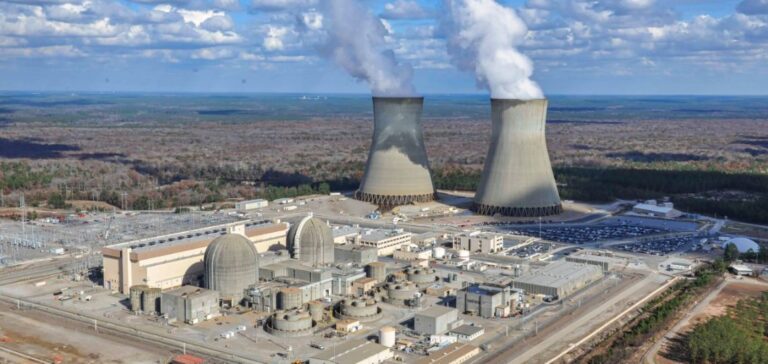On March 4, 2023, a nuclear reactor at the Vogtle plant near Waynesboro, Georgia, reached “initial criticality.” This step means that the nuclear fission reaction in the reactor is now self-sustaining, allowing heat to be produced which will be used to produce steam to generate electricity. This energy production will be increased progressively until the reactor reaches its full power generation capacity. Operators will perform tests to ensure all systems are working together and to validate operational procedures throughout the start-up process. Georgia Power, the owner of the reactor, expects Vogtle 3 to go into service in May or June of this year.
An ambitious project
Two Westinghouse AP1000 units are under construction at the Vogtle site, which already houses two operating pressurized water reactors. Construction of these two Generation III+ reactors with passive safety and modular design began in 2013, with Unit 3 in March and Unit 4 in November of that year. Southern Nuclear and Georgia Power took over management of the construction project in 2017 after the bankruptcy of Westinghouse.
Once operational, these two AP1000 reactors will provide a clean, emission-free energy source for the next 60 to 80 years. The units are owned by Georgia Power, Oglethorpe Power, MEAG Power and Dalton Utilities, and will be operated by Southern Nuclear. Unit 4 is expected to be commissioned by the end of the first quarter of 2024.
A potential for international development
The AP1000 design has been selected for Poland’s nuclear power program and is being considered for deployment in other countries, including Bulgaria and Ukraine. Currently, four AP1000 units are in operation in China, four more are under construction and two more are in the planning stages.
A major step for the nuclear industry
World Nuclear Energy Association Executive Director Sama Bilbao y León congratulated the teams on their hard work and said, “Now the pace of new nuclear power plant construction must accelerate globally to meet decarbonization goals and ensure energy security.”
For Chris Womack, president and CEO of Georgia Power, this milestone marks a significant moment for the company and the community. He emphasized that safety and reliability have always been the company’s top priority, and it is now focused on getting the unit safely into service.





















